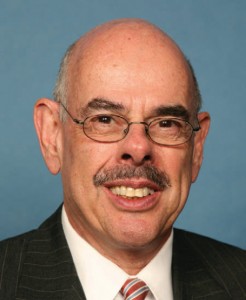Remarks of Rep. Henry A. Waxman – as prepared for delivery | May 10, 2012
I thank my colleagues on the Ways and Means Committee for organizing this event.
Five years ago today, we achieved a breakthrough, taking a critical step toward a more progressive trade policy that raises standards for labor, the environment, and public health.
I became involved because much of the U.S. proposal on trade and medicines was being taken from Hatch-Waxman, the landmark law that delivered generic drug competition to the American marketplace. The only problem was that our trade proposals were being designed to have the exact opposite effect – delaying generic competition in poor countries, countries in which the vast majority of people could not afford brand name medicines.
Hatch-Waxman also offered incentives to innovators to encourage them to reinvest in developing new drugs. But it was a careful balance, addressing market dynamics that simply do not exist in developing countries.
From a public health perspective, I was also concerned that policies in the Central America Free Trade Agreement and other U.S. FTAs were undermining the WTO’s 2001 Doha Declaration on TRIPS and Public Health. The Doha Declaration reaffirmed that trade rules for intellectual property can and should be interpreted and implemented in ways that protect public health and promote access to medicines for all.
And so, on May 10, 2007, I joined my colleagues in seeking changes in how intellectual property rules would apply to medicines.
These changes revolved around two key principles:
One, that U.S. trade policy needs to take into account the needs of developing countries, where the availability of affordable medicine can mean the difference between life and death.
And, two, that poor patients in poor countries should not have to wait longer than we do in the United States for access to generic medicines.
For example, under the May 10 agreement, new drugs would still get 5 years of exclusive marketing rights. But there was a safeguard available so that a generic medicine could be approved in a developing country no later than in the United States.
The May 10 agreement also offered safeguards to prevent drug regulatory authorities from being forced to act as patent police and to mitigate the risk that patent abuses could keep affordable generic medicines from the market.
And, language was added to make clear that the amended Free Trade Agreements do not and should not prevent countries from taking measures to protect public health.
Many advocates for public health and developing countries wanted us to go further. However, the compromise emerged from the confines of signed agreements and negotiations with a Republican Administration. And just as with the labor and environment provisions in the May 10 agreement, we considered it to be a model we could continue to improve upon.
Unfortunately, 5 years later, as the U.S. engages in the Trans Pacific Partnership talks, we have once again lost ground. The USTR’s intellectual property proposal outlined for the TPP talks features neither the principles nor the safeguards we advanced on May 10, 2007.
Instead, we are back to a one-size-fits-all paradigm.
Once again, the U.S. proposal would leave smaller and poorer developing country patients waiting longer than patients in the United States for access to a generic drug.
To be clear, the TPP negotiations include developing countries, like Vietnam, a country in the U.S. PEPFAR AIDS relief program with 280,000 people living with HIV. It includes Peru, a country where nearly one in three people live in poverty and the existing US-Peru FTA already has the May 10 changes.
These are small poverty stricken nations, where the brand industry can make only marginal profits, but the impact of such agreements on a large population of poor patients could be severe.
We need to do better. If the Administration is serious about striking a balance, it needs to go back to the drawing board and come up with a reasonable mix of incentives for innovators that do not pose unnecessary barriers to poor patients seeking access to low cost generic medicines.
On this 5 year anniversary we should reflect on why the May 10 agreement was necessary and why it should continue to be a premise for our trade agreements moving forward.





